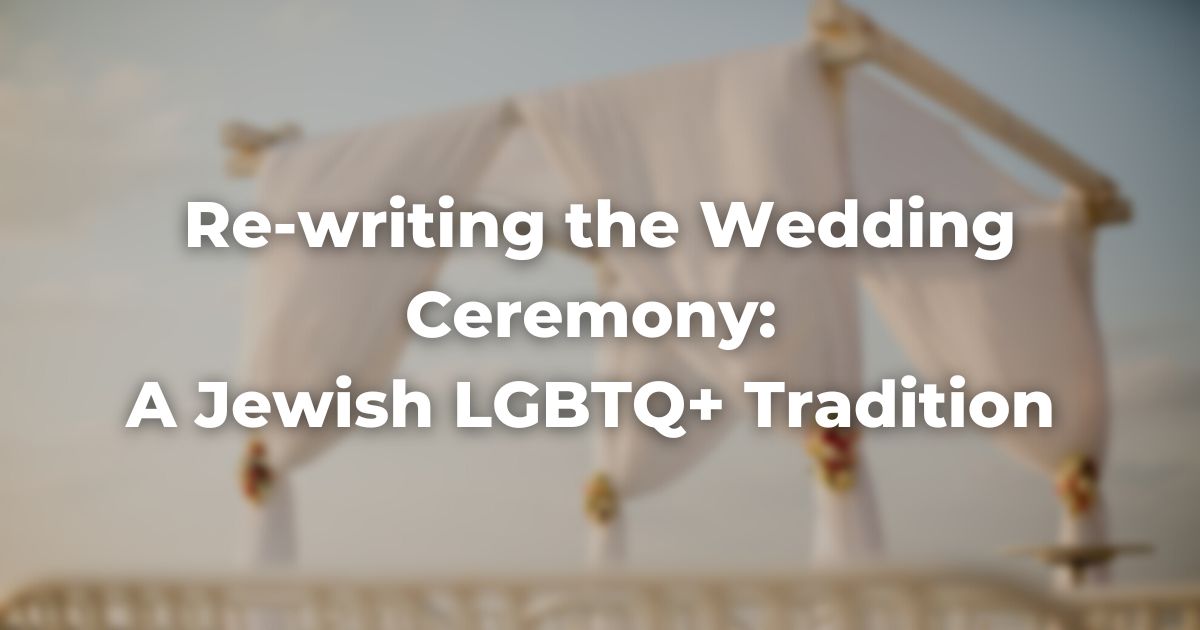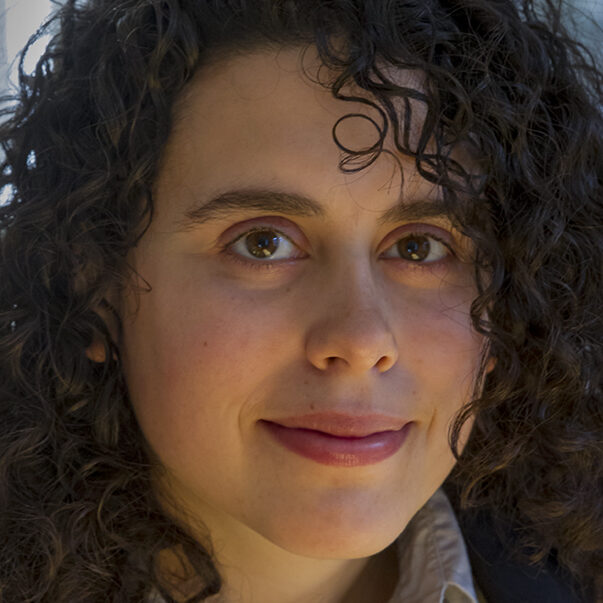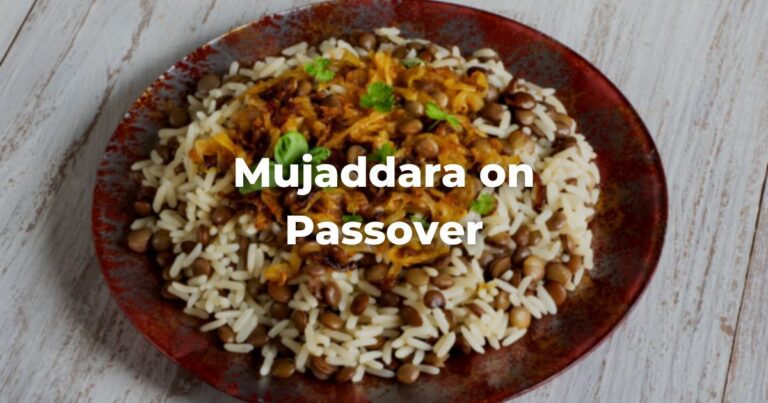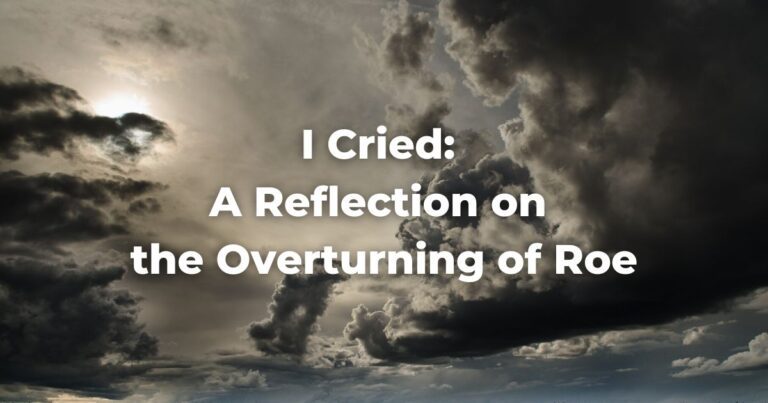Whenever one of my Jewish friends who is “family” (read: LGBTQ+) announces an engagement, I know that within the week, I’m going to be getting an email.
It’s going to be the “send me your wedding documents” email and it’s become a traditional part of Jewish LGBTQ+ wedding prep.
And so, I’ll scrounge up the text from our ketubah, the blessings under the huppah, and the birkat ha-mazon, grumble a bit at the ever-aging doc date (2016!), and send it over, just like my married LGBTQ+ friends sent me their docs all those years ago.
But where did this tradition start?
I have to assume it was at least in place by 2006, when the Conservative Movement adopted the “Homosexuality, Human Dignity and Halakhah,” teshuvah, which explicitly recognized L&G people and relationships as full participants in Jewish tradition…but didn’t actually include any of the essentials for the wedding ceremony (kiddushin, ketubah, or get), and definitely didn’t address any of the other letters of our alphabet soup (B&T for starters).
It took until 2012 for the conservative movement to issue the standardized texts for same-sex marriage and divorce (2011 to recognize bisexuality), until 2017 for the inclusion of transgender and gender-non-conforming Jews, and until 2020 for an egalitarian ceremony for heterosexual couples. But here we are–in a place I’m increasingly excited to celebrate.
The 2012 teshuvah includes (beautiful!) standard texts for same-sex weddings that operate “within the limits of traditional halakhic discourse.” And in the scope of Jewish history, it’s a huge step forward. But there’s still room to grow…not to mention that standardized wedding texts for trans and nonbinary Jews still don’t exist.
There can also be discomfort (which my wife and I certainly experienced) that the 2012 texts look / sound / feel very different from the traditional Jewish wedding ceremony.
Is it separate but equal (which can never be equal)?
Or, is it as the authors argue, “separate but better,” circumventing some of the historically problematic pieces of the halacha–like the ketubah / get protocols which had been used to abuse women seeking to leave their marriages.
Even in 2016, with the 2012 teshuvah on hand, my wife and I sent out our document all-call. And ultimately, much of the focus of our premarital counseling with our officiating rabbi was our own journey through the halakha of wedding ceremonies to find something that both worked in traditional halakhic discourse and felt right for us as a couple.
In retrospect–there was a loss in this.
While intellectually stimulating, our premarital counseling skipped over all personal aspects — what we loved about each other, our hopes, dreams, and fears for married life, and how to build a Jewish home. And so to anyone who wants to use the ceremony presented in the 2012 teshuvah, I say gezuntah heit!
In fact, I might even recommend it if you can–to spend the sacred time and ultimately limited time of marriage prep on your actual married life.
On the other hand, our engagement with weddings and marriage halacha was meaningful–because that “back-and-forth, working-in-the-gray-zones” process is a big part of what Judaism is all about. And, though it was somewhat back-engineered, we were learning about what being married (Jewishly) means and what is important to us as a couple, then inscribing that into the ceremony itself.
Either way, we’re married.
And we’ve kept our docs, the ones our friends have sent, and copies of pertinent teshuvot. You never know when they will next come in handy.
Author
-

Emily Jaeger is a poet and professional writer based in Wilmington, North Carolina. Her work has appeared in Insider, News Courier, and JTA among others. https://emilyjaeger.com/
View all posts






